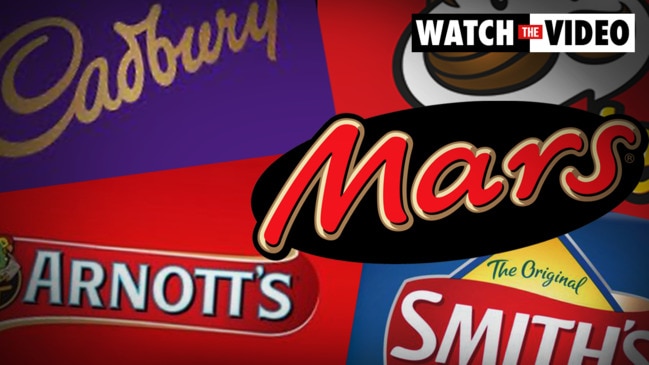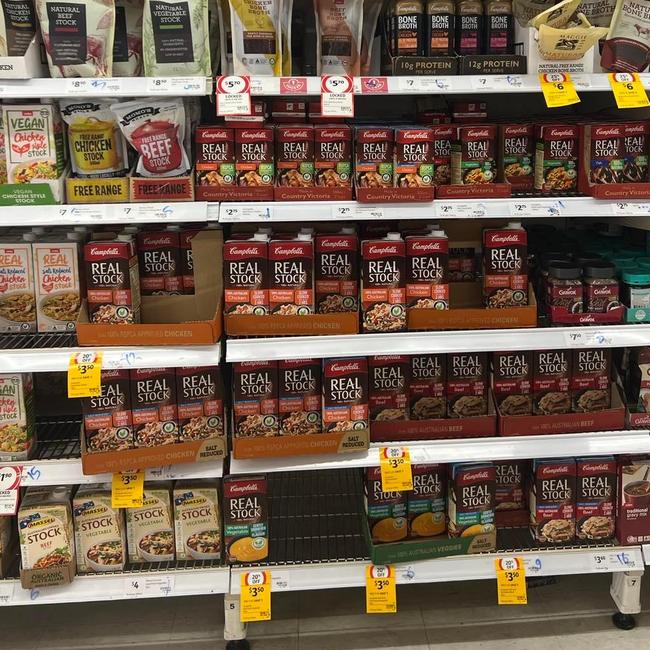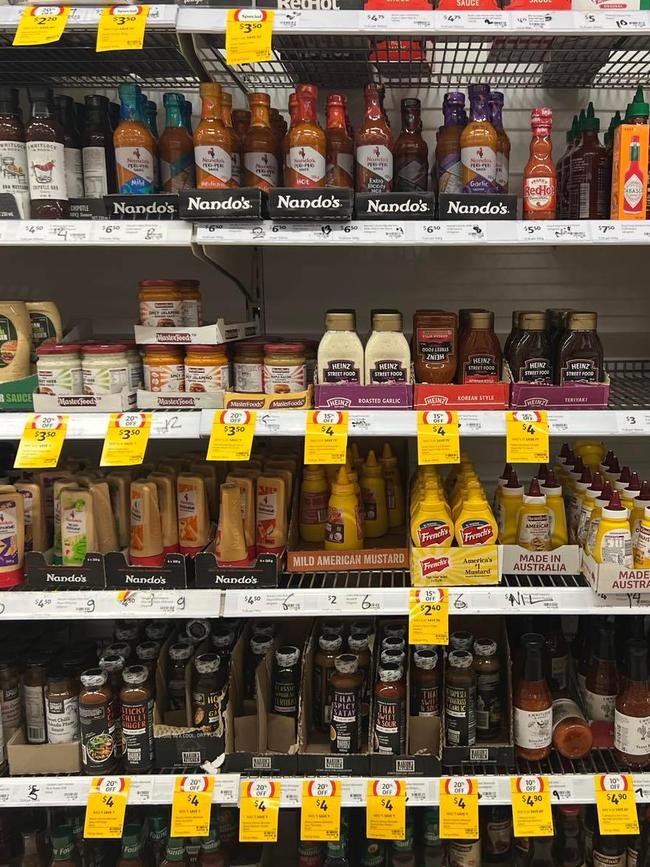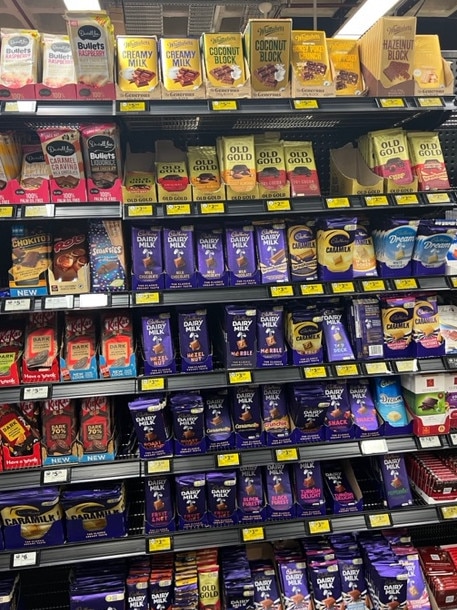Big supermarket problem facing Australian owned and made brands
There is a big issue with this supermarket shelf that most Aussies probably wouldn’t even notice – but it plays a big role in your weekly shopping trip.

Retail
Don't miss out on the headlines from Retail. Followed categories will be added to My News.
Most Australians want to support locally own brands and local produce as much as possible, but there is a big issue making this task a lot harder when doing the weekly grocery shop.
Local brand certifier Australian Owned has been ramping up pressure on the Federal Government to ensure local brands and producers are getting the support they need.
Less than 20 per cent of products in Australian supermarkets are Australian owned, the company says, with Aussie products often given less visible shelving positions over better-known international brands.
Australian Owned wants the government to bring in changes that would have a real and positive impact on Aussie-owned brands, such as requiring local products to be displayed more prominently.

Australian Owned general manager Kristy Ponting questioned why Aussies were having to put in extra effort when trying to find locally owned and made products while out shopping.
“The Australian consumer prefers to buy local and understands the importance of supporting Australian businesses, so why are the supermarkets making it so hard for the everyday Aussie to locate Australian owned so they can do their bit to support Australia’s growth?” Ms Ponting told news.com.au.
“Everyone knows that if there was pride shown by supermarkets for their Australian-owned products (prime shelf positioning, highlighting the products) the consumer sure would support the products and feel good about the supermarket for doing it!”
Pictures taken at various supermarkets around Sydney show that shelves are often dominated by non-Aussie products, with locally owned brands placed up high or near the bottom of the shelf where they are less likely to be seen.
Australian-owned Massel is one of the brands that has its products placed right at the bottom of the shelves in the pictures, while American-owned Campbells stock products are front and centre.

In another image, products from British multinational confectionery brand Cadbury, now owned by American company Mondelez International, are seen dominating the aisle.
Another picture shows sauces from the popular Nando’s brand, which is linked to a multinational fast food chain founded in South Africa, being given shelving priority.
Massel director of sales and marketing Mark Caine told news.com.au Aussie-owned products are often seen as “less important” in comparison to major international brands.
“As often is the case, Australian-owned retail food products sell well and are sometimes market leaders in their segment or category, however they’re not large multinational companies that operate in many categories across the supermarket and therefore are often seen as less important,” he said.
“The larger international brands are given the prime location. Products placed on the bottom shelf cannot be seen.”


Mr Caine said placing Australian products in more obscure locations on the shelf means they are “destined” to be harder to see by shoppers.
This becomes even more difficult when a few units of these products have been sold, with the remaining stock sometimes pushed back on the bottom shelf.
A Woolworths spokesperson told news.com.au that its stores were “carefully laid out aisle by aisle to make the weekly shop as simple to navigate as possible” for customers and that this would continue to be their approach.
“We have a strong commitment to an Australian-first sourcing policy with 100 per cent of our fresh meat and 96 per cent of our fresh fruit and vegetables sourced from Australia,” the spokesperson said.
“We follow strict Country of Origin requirements across our stores and always encourage customers to read the labelling to make informed choices.”
The spokesperson said Woolworths understands how important it is to support Australian businesses.
A Coles spokesperson said local sourcing for products was “extremely important” to the supermarket chain was it was “passionate about supporting Australian businesses to deliver great quality local products to our customers”.
“We pride ourselves on having Australian Owned and Australian Made products in every aisle, not just contained to one area in our stores and shelves,” the spokesperson said.
Coles said it has an Australian First Sourcing Policy, which means it sources Australian grown food wherever possible.
“In the last financial year, 100 per cent of Coles Own Brand fresh pork, chicken, turkey, duck, beef, lamb, milk, eggs, frozen vegetables and potatoes were Australian grown and more than 96 per cent of our fresh fruits and vegetables were sourced from suppliers all over Australia,” the spokesperson said.
“We comply with country-of-origin labelling requirements, making it easier for customers to identify where a product is from.”
Mr Caine said Australian products should be given preferential positioning on supermarket shelves to encourage and make it easier for citizens to support local products.
He also suggested bringing in special shelf-tickets showing which products are Australian owned could make a major difference.
“This way Australian-owned and made products are in the ‘mainstream’ and shoppers will be able to make an informed decision about who they support as they do their weekly shop,” Mr Caine said.
“We don’t want to make it harder for Aussie consumers to find and support their favourite Australian-owned brands.”
In a bid to further highlight the inequality between the treatment given to local and international brands, Australian Owned is challenging politicians to go into bat for Aussie owned businesses by participating in a special event called The Unfairest Cricket Match.
The event will be held at 5pm on Wednesday, November 16, at Kensington Oval, with cricket legend Glenn McGrath to captain the Aussie team and face off against the “The Rest of the World”.
The Australian Owned team will face a number of disadvantages, such as smaller cricket bats, bigger stumps and even an unfair umpire, to replicate the challenges facing Aussie products on supermarket shelves.
Australian Owned has invited Prime Minister Anthony Albanese, NSW Premier Dominic Perrottet and a number of other influential Aussies to participate in the event and have a bat to see just how many disadvantages Aussie brands face.
Originally published as Big supermarket problem facing Australian owned and made brands



